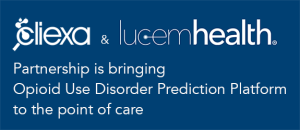Our partners at the University of Colorado Boulder’s Cognitive and Affective Neuroscience Lab (CANLab) feature our collaboration with their most recent publication.
The Publication
Featured in Neurotherapeutics, the CANLab researchers explore the application of machine learning to chronic pain assessments, leveraging emotional body maps powered by the cliexa platform. With emotional and behavioral health as cornerstones of their chronic pain research, the study explores the emotional processing associated with body sensations. Remote patient outcomes reporting for the study was built into our integrated pain management platform, cliexa-EASE.
The study consisted of sixty-five chronic back pain patients, of whom reported their pain intensity and its’ location on an interactive body map. This focus on patient-reported data aligns with cliexa’s vision of placing the patient at the center of their care journey. With these metrics, the team leveraged two separate machine learning models to predict future pain levels two weeks in advance.
The CANLab’s Initial Findings
The CANLab’s initial findings were deduced as two separate models. One model ignored pain-related features as predictive measures of future pain with the second factoring in existing levels of pain. The contribution of emotions, especially emotional experiences felt by the patients, impacted chronic pain levels considerably. With these findings, they believe these results could contribute to the generation of a novel artificial intelligence model to assist in the diagnosis and treatment approaches to chronic back pain. Read the complete publication here.
Future Collaborations and Research
Our collaboration with the CANLab is one of many ways we strive to innovate in the clinical research space. With artificial intelligence moving into the forefront of modern healthcare, we are continually searching for further areas to drive innovation in the medical field. If you are interested in exploring some of our research partnership opportunities, please Contact Us for further details.





